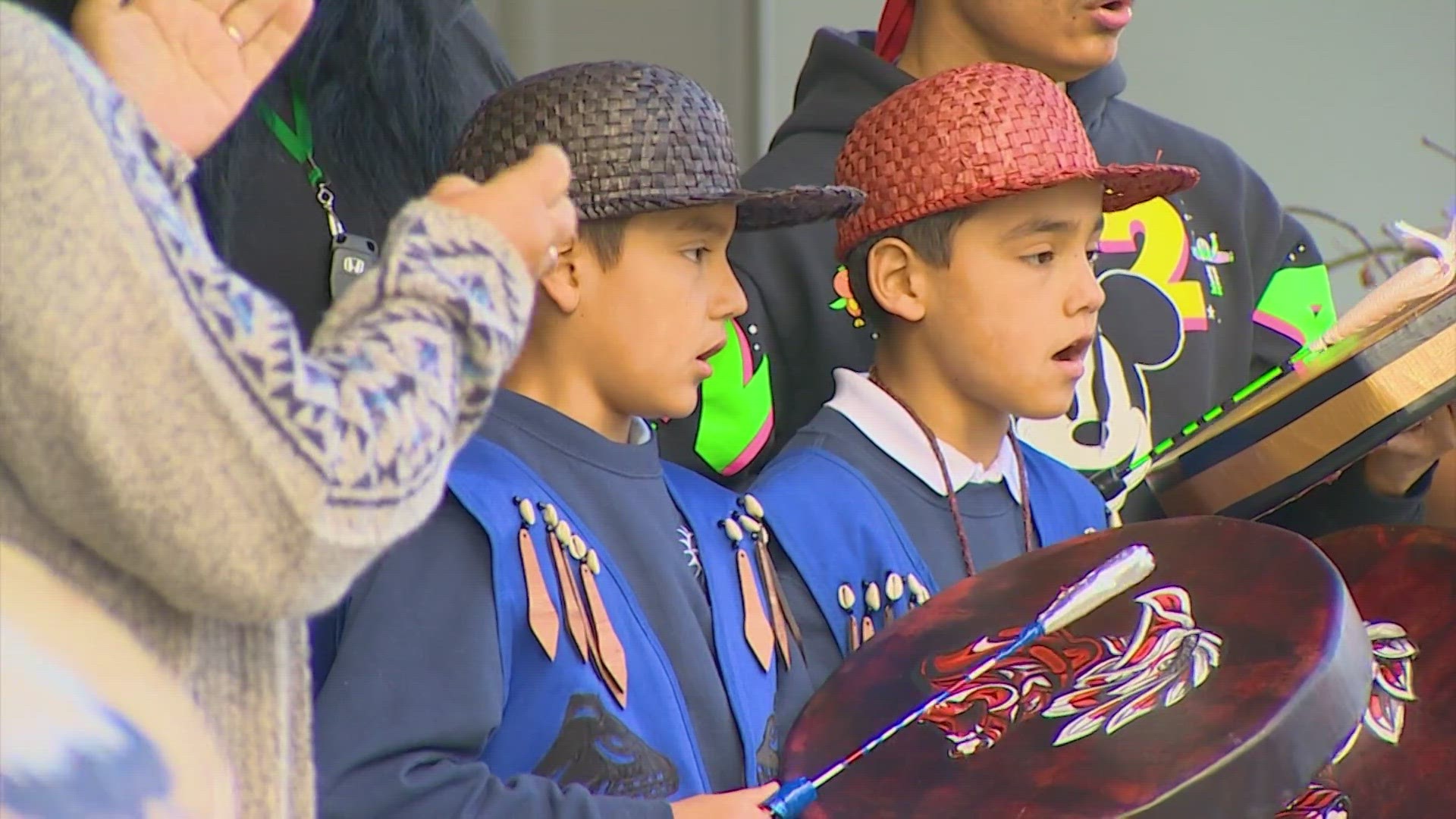EVERETT, Wash. — A growing number of cities across western Washington are formally acknowledging the fact the land we all live on once belonged to native people.
The City of Everett was one of the first to do so.
Officials took it one step further on Thursday by turning the spoken word into the physically tangible.
The downtown headquarters for Everett city government is not far from the ancestral villages where leaders of the Tulalip tribes once lived.
It was at this very spot that Native Americans and non-natives gathered to recognize this land as their land.
A land acknowledgment declaration is standard at Everett City Council meetings, but now it's a permanent part of the city itself.
Tulalip artist James Madison created a Coast Salish sculpture for the outside walls of Everett's Municipal Building.
It's there to remind all who enter that the land upon which the building sits is sacred to its original inhabitants.
"This is where I grew up," Madison said. "This is where my people grew up. This is home."
The installation is a series of steel sculptures depicting orcas, salmon and other native imagery important to the Tulalip people.
Madison learned to be an artist from his father and grandfather.
To his immediate and extended family, the display is about honoring all those who came before him and the hardships they endured.
"I think it's very important that we show the respect to the people who have been here from day one," Madison said.
Everett Mayor Cassie Franklin initiated the effort, believing actions often speak more loudly than words.
"Our community, every time they walk by our city buildings, will remember the land they stand upon," Franklin said.
"For me, this is all part of keeping my culture alive," Madison said. "My grandfather always told me we are not petrified. We are alive."
To Madison, hearing the words of acknowledgment and seeing his native artwork on permanent display means one simple word.
"It's respect to my people," Madison said.
It's respect long overdue and an acknowledgment that this land belongs to all of us, but it was somebody else's first.
"It's two worlds coming together and paying respect to people who come from this very land," Madison said.
Here is the Everett Land Acknowledgement:
"We acknowledge the original inhabitants of this place, the sduhubš, and their successors, the Tulalip Tribes. Since time immemorial, they have hunted, fished, gathered on, and taken care of these lands and waters. We respect their sovereignty, their right to self-determination and honor their sacred spiritual connection with the land and water. We will strive to be honest about our past mistakes and bring about a future that includes their people, stories, and voices to form a more just and equitable society."
Land acknowledgments are a growing phenomenon across the Northwest and they're not just for city council or school board meetings.
You can learn more about creating one for your organization here.

